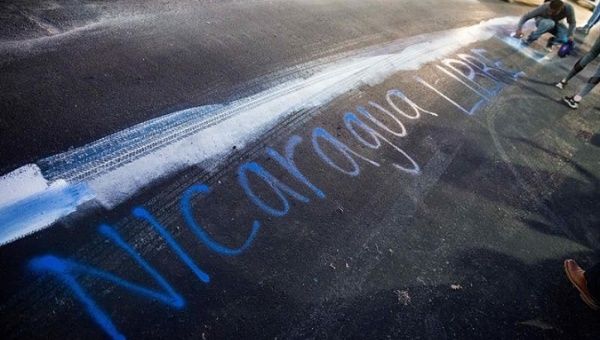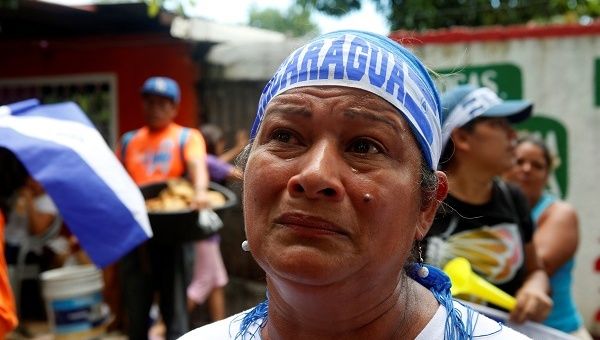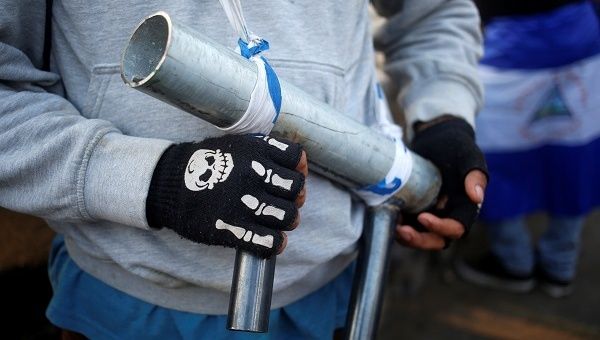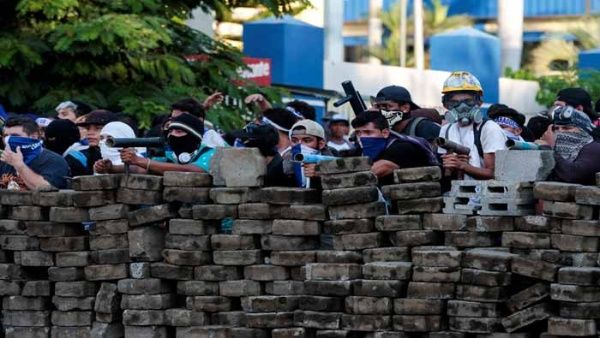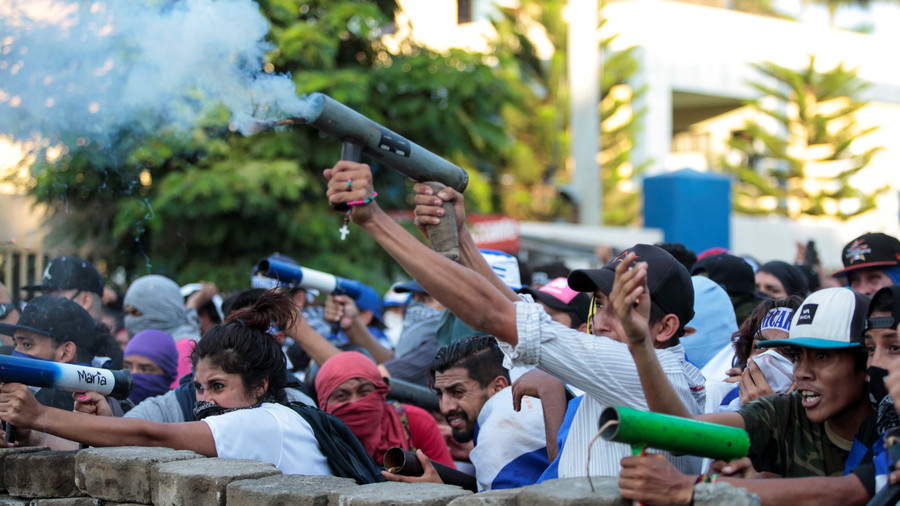Nicaragua: Ortega Renews Call For Peace Following Recent Opposition Violence
Published 31 May 2018
The owners of Nicaragua are all Nicaraguans, regardless of religion and political ideology,” said Ortega
Following a series of violent actions by Nicaraguan opposition forces, President Daniel Ortega has renewed the call for peace and declared that Nicaragua didn't belong to the various interest groups foreign and domestic, which have sort to use the conflict to oust him from office.
“Nicaragua belongs to all of us, and we all stay here... the owners of Nicaragua are all Nicaraguans, regardless of religion and political ideology,” said Ortega in front of thousands of supporters during a Mothers' Day event Wednesday.
Ortega rejected the opposition's petition for his resignation and reminded the public of the “long journey” Nicaragua had gone through reach peace, from the armed conflict since the 1960s to peace agreements in the 1990s.
“The devil is ready to destroy a country that was in peace, a Nicaragua admired by the world for its reconciliation capacity,” he said.
The president also expressed his willingness to reach a peaceful agreement with the opposition groups, in the face of the violence, which had led to the suspension of negotiations last week.
“We want peace for all Nicaraguan families, security for all Nicaraguan families, from the one that has more to the one that has less, because we all have the same rights in front of God and the law,” said Ortega.
Violent protests and clashes with security forces have caused the death of many of many pro-government individuals, who have been in many instances targeted by armed protesters, it has also led to the death of some protesters.
On Wednesday, several opposition groups organized a series of violent protests with specific objectives, destroying buildings, injuring many and killing at least five.
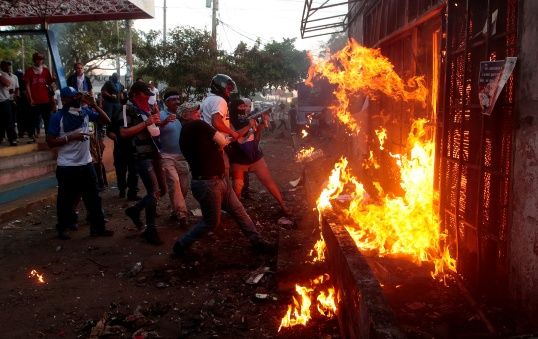
Demonstrators burn the Sandinista radio station during clashes with riot police during a protest against Nicaragua's President Daniel Ortega's government in Managua, May 30, 2018. Photo | Reuters
An opposition group armed with homemade mortars attacked a Sandinistas caravan heading to Managua for the Mothers' Day homage, killing two and injuring at least 12 people including police officers.
The mayor of Esteli, Francisco Valenzuela, said the caravan was attacked with rocks, homemade mortar, and gunfire by people wearing hoods.
“We spoke with them for about three or four hours. It was difficult, and we were brutally ambushed, attacked when we tried to pass. Some of our comrades are injured. We have a situation of excessive violence in relation to our mobilization's peace, security and calmness terms that must prevail,” he said.
Other sources report that at least four members of the Sandinista Youth were killed during another attack on a caravan leaving the rally.
Also in Esteli, a group attacked, looted and burned the offices of tax collection office, but no people were reported injured.
Nueva Radio Ya (New Radio Now), the State's leading radio station, was also attacked on Wednesday and set on fire, just two days after demonstrators burned its facade. The offices of 100% News Channel and the Dario radio station, both critical of the government, were also attacked.
A group also set fire to the agriculture and livestock cooperative buildings and in the city of Chinandega people who were taking care of the city's town hall were attacked.
A clash between the opposition and pro-government groups was reported near the Central American University (UCA), the Engineering National University (UNI) and the Cathedral of Managua, leaving at least one dead and eight people injured.
And an opposition group, armed with guns and home-made mortars, attacked and looted the Dennis Martinez National Stadium.
Amid the clashes and attacks, Ortega called for all parties to come together to continue the talks, despite the violence shown by some of the most radical opposition groups, saying that peacebuilding is the only way to move forward.
The government has allowed the Inter-American Court of Human Rights and the Organization of American States to investigate the recent violent events, and agreed to create an Interdisciplinary Group of Independent Experts to research and shed light on deaths during the protests.
“The agreement was signed today. Our government is respecting the commitments of the dialogue roundtable by investigating every violent act, with justice... We're totally willing and committed to calling for dialogues on every theme in a respectful manner,” said Vice President Rosario Murillo.
The Catholic church has promoted dialogue between different parties, but they recently said that the discussions can't continue while violence is still present on the streets.
In a press release issued Thursday, the Reconciliation and National Unity Government denounced the crimes carried out since April 18, and denied any responsibility of the violence and the existence of paramilitary groups linked to it and reaffirmed its commitment on building peace and searching for truth to achieve what the people want.
The Nicaraguan political crisis began in mid-April when protesters took to the streets against a proposed social security reform that sought to overcome the system’s financial crisis by increasing contribution by both employees and employers to avoid raising the retirement age.
Employers would have faced a 3.5 percent hike while workers a 0.75 percent hike. President Ortega withdrew the reform and issued calls for dialogue to avoid a spiral of violence.
Despite this, clashes between violent protesters and state security forces continued. Violence in Nicaragua has left dozens dead and injured.
https://www.telesurtv.net/english/news/ ... -0015.html
We can see here TeleSur Eng again indulging in passive-aggressive journalism, the word 'clashes' implying false equivalency in that the violence is entirely instigated and prosecuted by these proxies for the chamber of commerce. Somebody needs going to the woodshed.
